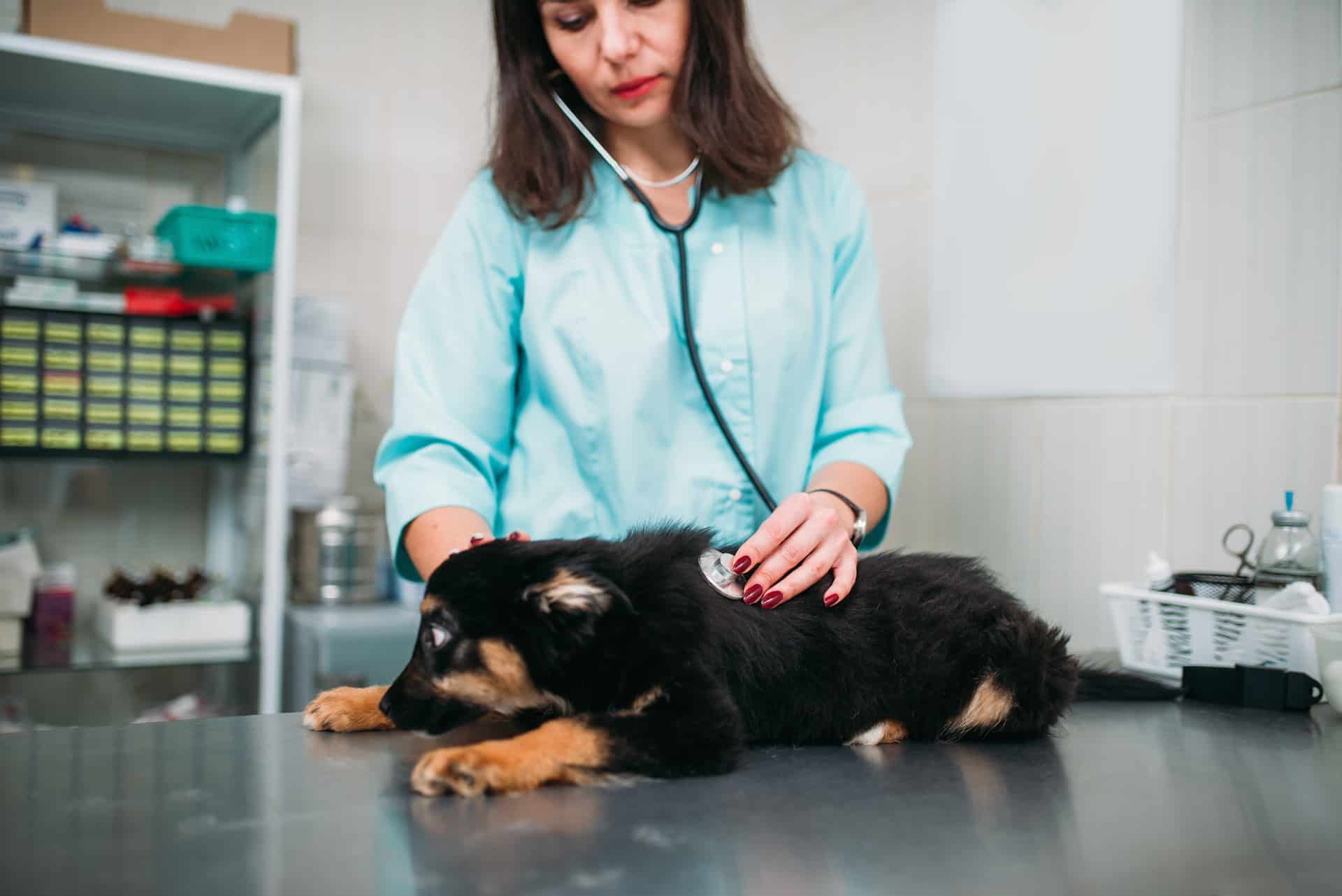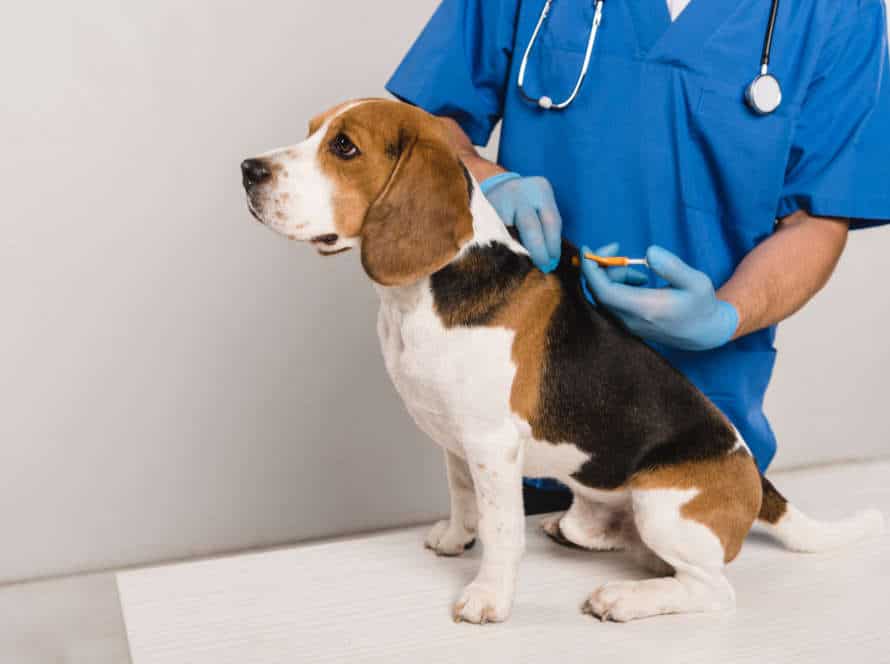Understanding Dog Allergies and How They Affect Behavior
Dog allergies can have a big effect on a pup’s behavior. It’s important for pet owners to know the signs and effects of these allergic reactions.
Common signs of dog allergies are: itching, scratching, rashes, and red or watery eyes.
In addition, dogs might show behavioral changes. These can include: being agitated, irritable, or less active than normal. This can harm their life quality.
In severe cases, allergies can cause anaphylaxis. This is a life-threatening condition and needs medical help right away.
Learning what triggers your doggo’s allergies and getting treatment quickly can help manage the symptoms and make them feel better. If you think your pup has allergies, go to the vet for proper diagnosis and treatment.
What are Dog Allergies?
Dog allergies? Nowadays, they’re pretty common. 10% of canines experience ’em! Allergies occur when the immune system responds to something foreign, like pollen, dust mites, molds, dander, or certain foods. In dogs, these allergies can show as skin reactions, stomach issues, or breathing difficulties. In some cases, it can even lead to behavioral changes. Let’s take a closer look at how allergic reactions can affect a pup’s behavior.
Common Types of Dog Allergies
Dog allergies are common for pet owners. Symptoms can include itching, sneezing, wheezing, or changes in behavior. To manage them effectively, it’s important to learn about the three types.
- Food Allergies: The immune system reacts to ingredients like chicken, beef, dairy, wheat, and soy.
- Environmental Allergies: These are often caused by pollen, dust, mold, and fleas. They cause intense itching and can lead to infection or changes in behavior.
- Contact Allergies: When skin reacts to materials like wool, plastic, or rubber, contact allergies occur. Symptoms can be itching, redness, or swelling.
If your dog has any signs of allergies, it’s essential to visit the vet. They will advise the best treatment for your pet’s specific allergy type.
Symptoms of Dog Allergies
Dog allergies can cause a range of symptoms in both humans and dogs. Here are the most common ones to look out for:
Humans: Sneezing, coughing, wheezing; itchy, watery eyes; skin rash or hives.
Dogs: Itchy, red skin around paws, groin and ears; constant licking/chewing of affected areas; ear infections and head shaking; sneezing and coughing (less common).
Recognising these symptoms is key for pet owners and dog lovers. Allergies can be very uncomfortable and disrupt daily life for both species. If you suspect your pup has allergies, take them to the vet for an evaluation and treatment.
Common Causes of Dog Allergies
Dog allergies stem from a canine’s overactive immune system reacting to specific substances. These allergens are the same as those that affect humans, such as pollen, dust mites, and certain foods. Knowing the common causes of dog allergies is key to managing and avoiding them.
Food: Dogs can be allergic to beef, pork, chicken, corn, wheat, and soy.
Environmental: Pollen, dust, dust mites, mold, and flea bites can cause allergies.
Contact: Allergies can also be caused by contact with fabrics, chemicals, or plants.
Recognizing the source of your pup’s allergies is vital for preventing and managing them. This includes regular bathing, proper grooming, and evading allergens.
How Dog Allergies Affect Behavior
Dog allergies can affect behavior significantly. Such allergies can lead to symptoms like: skin irritation, hair loss, vomiting, ear infections, and more. Many folks are unaware that allergies can also influence their pup’s demeanor. In this piece, we’ll explore how dog allergies can affect behavior.
Aggressive Behavior Due to Allergies
Aggressive behavior in dogs can be caused by allergies. Just like humans, they too can suffer from allergies to food, chemicals, and environmental factors. This can lead to them displaying aggression to their owners and other animals. Common allergens that may cause this include fleas, pollen, dust, and certain foods such as dairy or wheat.
If the allergies are not treated, dogs can develop chronic discomfort. This can lead to anxiety, agitation, and aggression. To recognize the symptoms of these allergies, look for excessive scratching, licking, or biting of the skin, redness or inflammation, or behavioral changes such as irritability, fear, or fearfulness.
Consulting a vet is essential to identify and treat the cause of the allergies. This will help regulate their comfort levels and improve their quality of life. Also, regular grooming and monitoring their behavior can help.
Lethargic Behavior Due to Allergies
Lethargy can be a sign that your pup is suffering from allergies. Knowing how allergies affect behavior can help you recognize when your dog’s not feeling well. Allergies can make dogs feel drowsy, sluggish, and unwilling to exercise. They may also lose their appetite, which can lead to dehydration and weakness. Other behavioral changes that may indicate allergies include restlessness, excessive scratching, and depression. Plus, allergies can worsen existing conditions such as arthritis, causing pain and reducing activity levels.
If you think your dog has allergies, take them to the vet. In most cases, symptoms of lethargy and other behavior changes can be managed with antihistamines or special diets.
Anxious or Restless Behavior Due to Allergies
Anxious or restless behavior in dogs can be caused by allergies. It’s vital for pet owners to understand how allergies impact their pup’s moods.
Symptoms to look out for are: scratching, itching, and biting at the skin. This can make them feel uncomfortable and anxious.
To help manage these symptoms, owners need to consult a vet and find out the cause of the allergies. Then, create a suitable treatment plan. This could involve diet changes, environment modifications, medications, or allergy shots.
It’s essential to address the behavior changes caused by allergies as it can have a huge impact on their wellbeing. With the right treatment and care, your canine companion can live a healthier and happier life.
Diagnosing Dog Allergies
Diagnosing dog allergies is tricky and they can show up in many ways. This article explains why it’s important to know what your pup’s allergies are, how to do it, and the signs of an allergic reaction. Get the scoop if you suspect your pooch has allergies!
Veterinary Tests for Dog Allergies
Veterinary tests can help diagnose dog allergies. These allergies can cause discomfort and change their behavior. Here are three common tests:
- Skin test – a small amount of an allergen is injected under the skin to check for reactions. It helps to identify the specific allergens causing the reaction.
- Blood test – measures the level of antibodies to certain allergens in the blood.
- Elimination diet – gradually removes certain foods to check for food allergies or sensitivities.
Once the allergies are identified, your vet will work with you to create a plan. It may include medicines, dietary changes, and other strategies to reduce the allergic reaction and improve your pup’s health and quality of life.
At-Home Testing for Dog Allergies
Testing your dog for allergies at home is a convenient way to diagnose them. Knowing and spotting allergies can help improve your pup’s behavior and health. Here’s what you need to know:
- Common causes of allergies are environmental triggers like dust, pollen, or mold. Food ingredients like beef, chicken, and soy can also be culprits.
- Signs of allergies are skin inflammation, breathing problems, stomach issues, and behavioral changes.
- At-home allergy testing kits for dogs usually require a blood or hair sample that is sent to a lab. Results can take days to weeks.
- Once you’ve identified the allergens, minimize exposure to prevent reactions. This includes controlling their diet, keeping your home clean and allergen-free, and using meds prescribed by your vet.
Pro Tip – Grooming and bathing can help reduce allergens in their fur and skin, preventing allergy symptoms.
Identifying Allergies Through Elimination Diet
Elimination diet is an efficient way to find out food allergies in dogs. This is often the cause of doggie behavior issues.
Here’s how to use it to diagnose dog allergies:
- Begin with one type of protein and carbs that your pup hasn’t had before. Feed only these foods for 12 weeks.
- Observe your pup’s behavior and symptoms carefully during this time.
- After 12 weeks, start adding other foods, one at a time.
- Note any reactions your doggie has.
Elimination diet helps to spot the food items causing allergies. Once these are identified, they can be removed from the pup’s diet to fix behavioral problems.
Pro Tip: Ask your vet if elimination diet is the right choice for your pup’s condition.
Managing Dog Allergies
Being responsible for your pet means managing its allergies. Learn the signs, symptoms, and treatments for dog allergies. This can help your pup live a healthy life.
How does this affect their behavior? In this article, we will reveal it all!
Medications for Dog Allergies
Medications can be a great way to help your pup manage their allergies and improve their quality of life. But, it’s key to understand the allergy and the right medication for relief.
Types of Medications for Dog Allergies:
- Antihistamines: Block the body’s histamine, easing symptoms like itching, sneezing and runny nose.
- Steroids: Prednisone for example, decreases inflammation and suppresses the immune system to reduce allergy symptoms.
- Immunotherapy: Allergy shots, which involve injecting small amounts of the allergen to desensitize the immune system over time.
- Topical Medications: Corticosteroid ointments or sprays can be used to help skin allergies.
Pro Tip: Always check with your vet before giving your dog any type of medication. Some pooches may have adverse reactions or interactions with different medications.
Allergy Shots for Dogs
Allergy shots are referred to as immunotherapy. They can be a good way for managing dog allergies. These allergies can affect the behavior and life quality of the dog.
Allergy shots desensitize the dog to allergens. This makes the immune system less reactive and able to handle the allergens better.
What to expect?
- Your vet will carry out an allergy test to identify the allergens causing the symptoms.
- Then, a plan is created for the dog’s immunotherapy. This involves routine injections over months or years.
- It’s important to work with your vet to monitor the dog’s progress. The plan should be adjusted if needed.
Allergy shots don’t provide quick relief, however they can reduce the frequency and severity of the symptoms.
Natural Remedies for Dog Allergies
Managing dog allergies with natural remedies can be effective. It can help with symptoms such as itching, sneezing and skin irritation. Plus, it boosts the immune system.
Try these natural remedies:
- Omega-3 Fatty Acids for reducing inflammation & itching.
- Apple Cider Vinegar for soothing & flea repelling.
- Coconut Oil for anti-inflammatory properties & better coat & skin health.
- Probiotics to boost the immune system & reduce allergy symptoms.
- Epsom Salt Baths for relieving itching & soothing skin.
Remember, natural remedies may not work for all dogs. Consult a vet before trying something new. Knowing how allergies affect your pup can help manage symptoms & give them a comfortable life.
Preventing Dog Allergies
Dog Allergies? Yeah, they’re pretty common. They can lead to unpleasant symptoms and even weird behavior in your pup. But, don’t worry! There are ways to help your dog avoid allergies. Let’s learn about the steps you can take to stop ’em and manage ’em if they still happen.
- Identify the culprit: Find out what’s causing the allergy. Is it certain foods, pollen, dust, or something else?
- Eliminate exposure: Once you’ve identified the culprit, eliminate your dog’s exposure to it as much as possible.
- Antihistamines: These can help to manage mild to moderate allergy symptoms. Consult your veterinarian for appropriate dosage and medication.
- Immunotherapy: For severe allergies, your vet may recommend immunotherapy to help desensitize your dog’s immune system to the allergen.
- Bathe your dog: Regular baths can help to remove allergens from your dog’s skin and coat.
- Improve air quality: Use air purifiers and keep your home clean to minimize dust and other allergens in the air.
Reducing Exposure to Allergens
If you or someone close has a dog allergy, there are a few things to do. Here are some tips:
- Bathe your pup – this can help get rid of allergen-causing dander and other stuff.
- Air filters – HEPA ones can catch pet dander and other allergens in the air.
- Make an allergen-free zone – your bedroom, or another living space with no pets.
- Hypoallergenic breeds – poodles, bichon frises, and maltese don’t shed or have much dander.
- See your doctor – they can recommend meds or allergy shots to help manage symptoms.
You can still have a furry friend – with careful management, even with allergies. Pro Tip: Talk to a professional if your pup’s behavior is due to allergies.
Maintaining a Healthy Diet and Lifestyle
Maintaining a healthy diet and lifestyle is a good way to avoid dog allergies. Knowing how allergies affect behavior can help us deal with them. Here are some preventive measures:
- Diet: Eat microbial and polyphenol-rich food such as yogurt, green leafy veggies, garlic, and apples. This helps the gut microbiome, leading to better immune system and skin health.
- Exercise: Exercising regularly reduces stress, encourages good sleep, and stops inflammation.
- Hygiene: Bathing and brushing your dog often prevents allergic reactions.
- Air Quality: High-quality air filters reduce indoor air pollution, so less allergens.
- Seek medical help if symptoms don’t go away. Untreated allergies can cause behavioral issues like anxiety or too much barking.
Pro tip: Have your pet tested for allergies. That way, you can take measures to prevent and treat the symptoms.
Breeds Less Likely to Cause Allergies
Dog allergies can be tough for owners. But did you know some breeds cause less allergy symptoms? Here’s a few to consider:
- Poodle – hypoallergenic fur, less dander.
- Bichon Frise – hypoallergenic fur, small & easy to exercise indoors.
- Basenji – groomed, hypoallergenic fur, no doggy odour.
- Portuguese Water Dog – curly & wiry hair traps dander
All dogs produce dander, so it’s important to speak to a doctor first if someone in the home has allergies.
Frequently Asked Questions
What are the common symptoms of dog allergies?
Common symptoms of dog allergies include itching, sneezing, watery eyes, runny nose, coughing, and hives.
Can dog allergies affect behavior?
Yes, dog allergies can affect behavior through increased irritability, anxiousness, and aggression.
How are dog allergies diagnosed?
Dog allergies can be diagnosed through skin prick tests or blood tests conducted by a veterinarian.
What can be done to treat dog allergies?
Treatment options for dog allergies include antihistamines, immunotherapy, and avoiding exposure to allergens.
Can dog allergies be prevented?
While dog allergies cannot be prevented, reducing exposure to allergens, regular grooming, and proper nutrition can help minimize symptoms.







